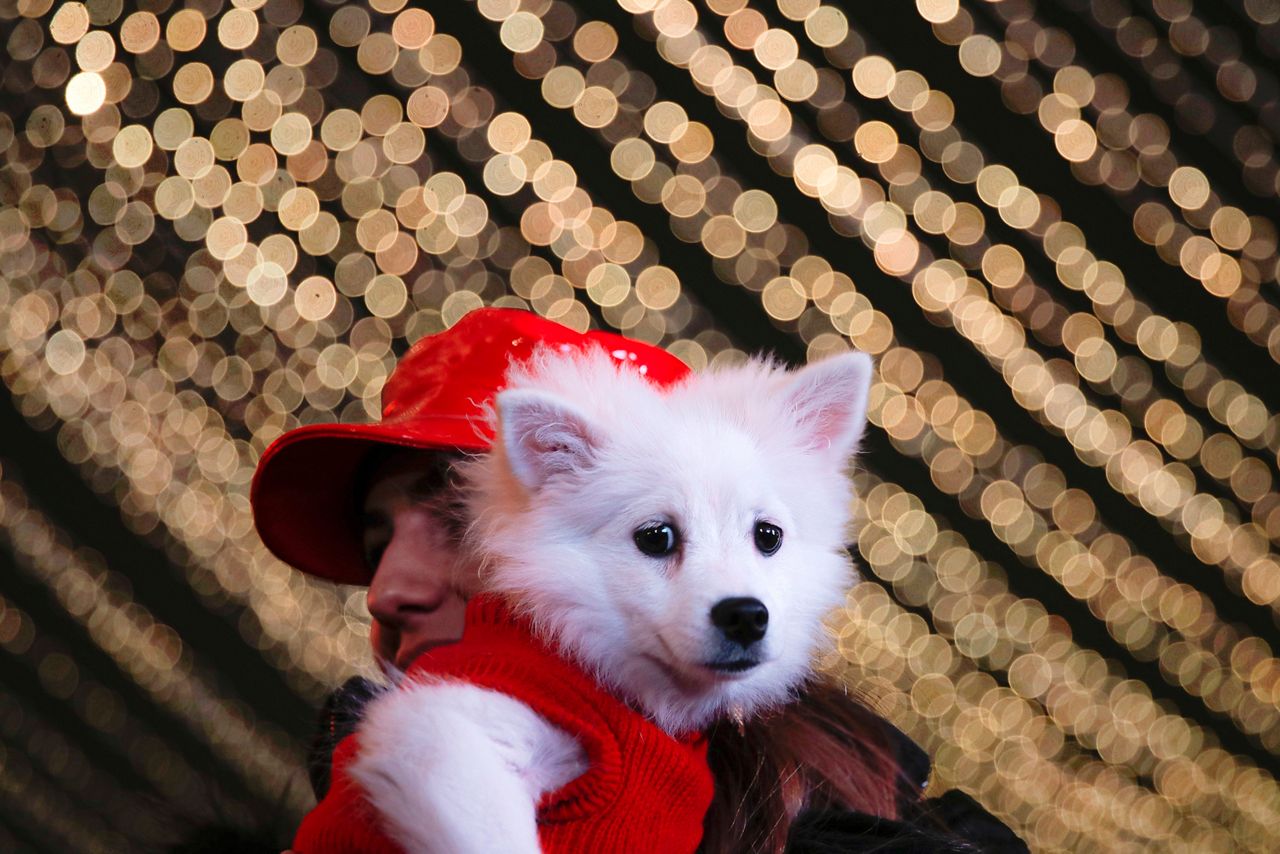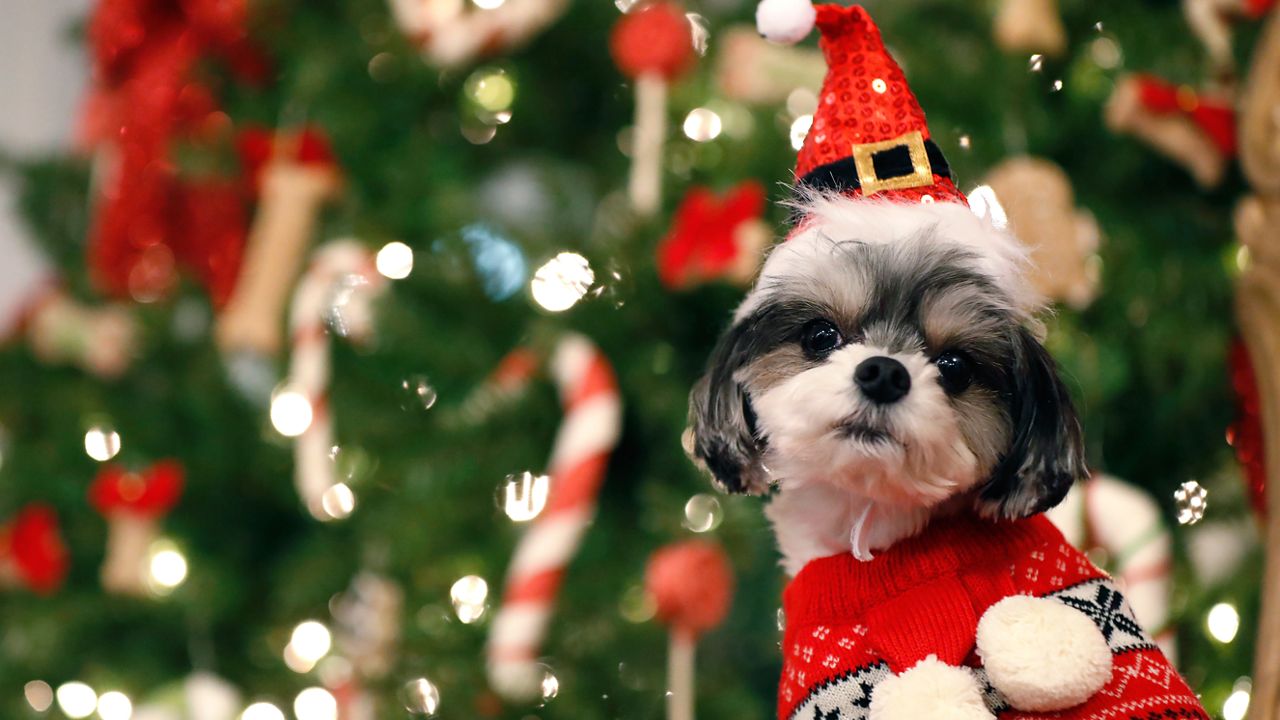NATIONWIDE — The weather outside is frightful, but there’s no need to frighten your pets this holiday season.
“As you gear up for the holidays, it is important to try to keep your pet’s eating and exercise habits as close to their normal routine as possible. Also, please be sure to steer pets clear of the following unhealthy treats, toxic plants and dangerous decorations,” the American Society for the Prevention of Cruelty to Animals said.
ASPCA released these safety tips ahead of the holiday:
Christmas tree safety
Secure your Christmas tree so it doesn’t fall on your pet or cause an injury.
This will also prevent the tree water — which may contain fertilizers that can cause stomach upset — from spilling,” ASPCA said. “Stagnant tree water is a breeding ground for bacteria, and your pet could end up with nausea or diarrhea should he imbibe.”
Avoid tummy aches from greenery
If pets eat holly, they can suffer from nausea, vomiting and diarrhea. If pets eat mistletoe, they can also suffer from caridovascular or gastrointestinal issues. Lilies can also cause kidney failure in cats.
To be extra safe, ASPCA suggested choosing “just-as-jolly artificial plants made from silk or plastic, or choose a pet-safe bouquet.”
Tinsel trouble
Tinsel looks like toys to some pets — perfect for batting around or securing in their mouths. But if a pet eats tinsel, it can cause vomiting, dehydration or even an obstructed digestive tract that may require surgery."
”It’s best to brighten your boughs with something other than tinsel,” ASPCA said.
Careful with candles
Pets have been known to burn themselves on unattended lighted candles, or even start a fire if they knock them over. ASPCA recommended using appropriate candle holders on a stable surface. If you leave the room, blow out the flame.
Watch your wires
”Keep wires, batteries and glass or plastic ornaments out of paws’ reach,” ASPCA said. “A wire can deliver a potentially lethal electrical shock and a punctured battery can cause burns to the mouth and esophagus, while shards of breakable ornaments can damage your pet’s mouth and digestive tract.”
Skip these treats
Avoid giving your pets anything fatty, spicy or sweet.
”By now you know not to feed your pets chocolate and anything sweetened with xylitol, but do you know the lengths to which an enterprising pet will go to chomp on something yummy?” ASPCA said. “Make sure to keep your pets away from the table and unattended plates of food, and be sure to secure the lids on garbage cans.”
Plus, don’t give your pets any bones from your leftovers.

Keep an eye on your drink
If you’re indulging in alcoholic beverages, make sure to keep them in a safe place where your pets can’t get a taste. If a pet drinks alcohol, they “could become weak, ill and may even go into a coma, possibly resulting in death from respiratory failure,” ASPCA said.
Gift guide
If you’re gifting something special to your pet, make sure to choose toys that are “basically indestructible,” or Kongs and safe-to-digest chew treats.
While kittens love to play with long strings like ribbon and yarn, those can get stuck in intestines. ASPCA suggested choosing “a new ball that’s too big to swallow, a stuffed catnip toy or the interactive cat dancer” instead.
Visitor rules
If your house guests want to give your pets some extra TLC, encourage petting or snuggle sessions and nice play time.
Ensure your medicines are locked or secured, and advise your visitors to do the same.
Recharge
“Give your pet his own quiet space to retreat to — complete with fresh water and a place to snuggle,” ASPCA said. “Shy pups and cats might want to hide out under a piece of furniture, in their carrying case or in a separate room away from the hubbub.”
New Year’s noise
If you’re celebrating New Year’s, make sure to keep your pet’s comfort and safety in mind, too.
”As you count down to the new year, please keep in mind that strings of thrown confetti can get lodged in a cat’s intestines, if ingested, perhaps necessitating surgery,” ASPCA said. “Noisy poppers can terrify pets and cause possible damage to sensitive ears. And remember that many pets are also scared of fireworks, so be sure to secure them in a safe, escape-proof area as midnight approaches.”



